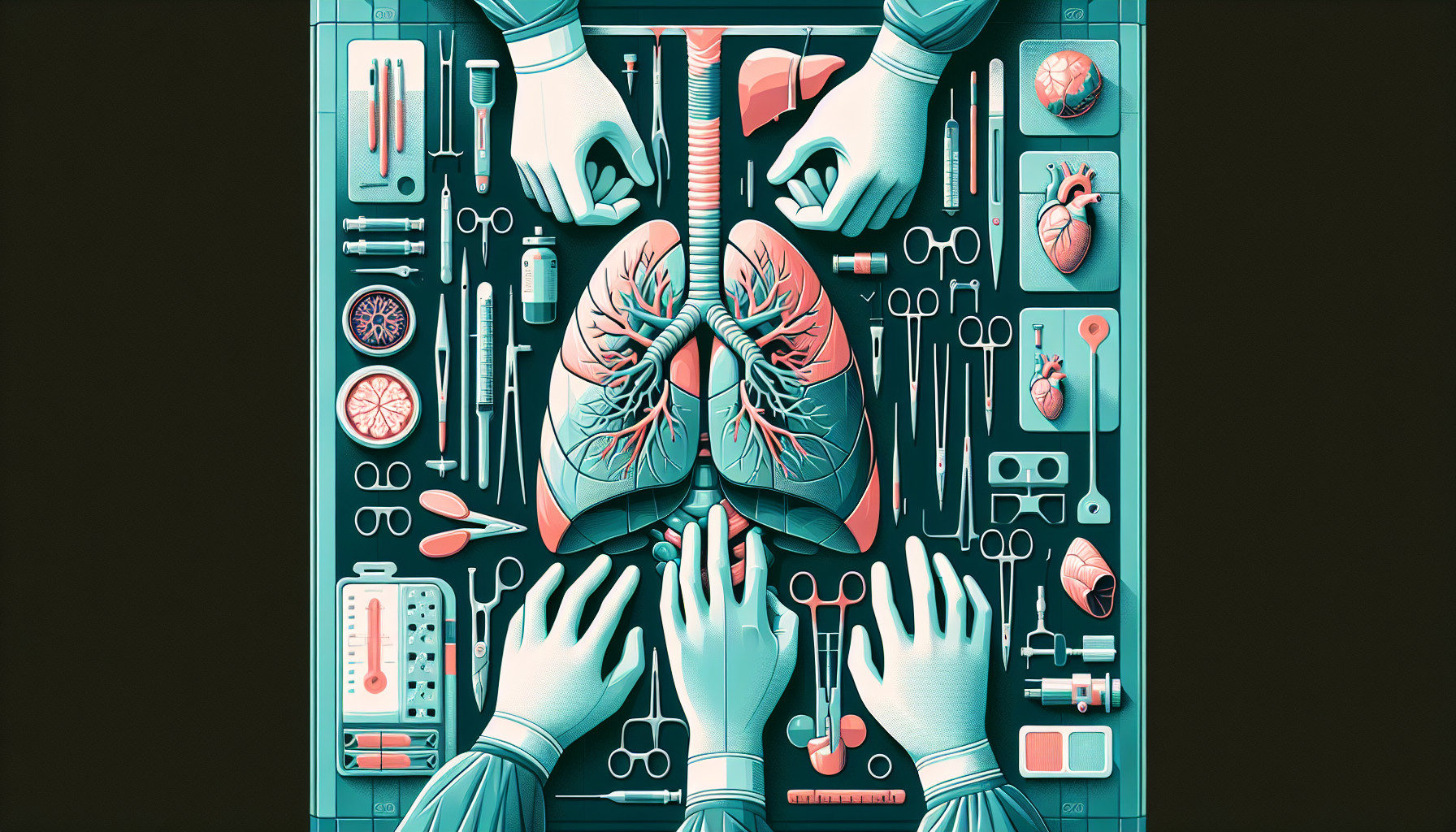Our Summary
This study looked at the effects of lung surgery on the results of an electrocardiogram (ECG), a test that measures the electrical activity of the heart. The researchers focused on minimally invasive lung surgeries and specifically lung resection, which is the removal of a part of the lung.
They divided the surgeries into two groups: those who had less than three segments of their lung removed, and those who had three or more segments removed. They then compared the ECG results of the patients before and after their surgeries.
They found that there was a significant difference in the QRS axis (a measure of the direction of the electrical activity in the heart) before and after surgery. Specifically, there was a shift towards the right after left-sided lung surgeries, and a shift towards the left after right-sided lung surgeries. However, they did not find any significant changes in other ECG parameters.
The researchers concluded that understanding these changes in ECG results is important in monitoring patients after lung surgery. They suggested that these changes might be harmless and due to changes in the shape and position of the structures within the chest after surgery.
FAQs
- What was the focus of this study about lung surgeries and their effects on ECG results?
- What differences were observed in the QRS axis in ECG results after lung resection surgery?
- Why is it important to understand the changes in ECG results after lung surgery according to the researchers?
Doctor’s Tip
Therefore, a helpful tip a doctor might tell a patient about lung resection is to be aware that there may be changes in their ECG results after surgery, specifically a shift in the QRS axis. It is important for patients to keep their doctor informed about any changes or symptoms they may experience post-surgery, as monitoring these changes can help ensure a successful recovery.
Suitable For
Patients who are typically recommended for lung resection include those with lung cancer, lung infections, lung abscesses, bronchiectasis, and other lung diseases. Additionally, patients with lung nodules, tumors, or cysts may also be recommended for lung resection to remove the abnormal tissue and prevent further complications. Patients who have not responded to other treatments such as medication or radiation therapy may also be recommended for lung resection.
Timeline
Before lung resection:
- Patient undergoes pre-operative evaluations, including imaging tests and lung function tests
- Patient meets with their surgical team to discuss the procedure and potential risks
- Patient may undergo a bronchoscopy to assess the lung tissue
- Patient may need to stop certain medications or adjust their diet before surgery
- Patient is admitted to the hospital on the day of surgery
After lung resection:
- Patient is monitored closely in the recovery room for any complications
- Patient may experience pain, fatigue, and difficulty breathing in the days following surgery
- Patient undergoes physical therapy to help with mobility and breathing exercises
- Patient is discharged from the hospital once they are stable and able to care for themselves
- Patient follows up with their surgical team for post-operative appointments and monitoring of their recovery progress.
What to Ask Your Doctor
- What are the potential risks and complications associated with lung resection surgery?
- How will lung resection surgery affect my overall lung function and breathing capacity?
- Will I need any additional treatments or therapies after lung resection surgery?
- What is the expected recovery time and rehabilitation process after lung resection surgery?
- How will lung resection surgery impact my daily activities and quality of life?
- Are there any long-term effects or considerations I should be aware of after lung resection surgery?
- How often will I need follow-up appointments and monitoring after lung resection surgery?
- What symptoms or changes should I watch for after lung resection surgery that may indicate a complication?
- Will I need any specific medications or lifestyle changes after lung resection surgery?
- Are there any alternative treatment options to lung resection surgery that I should consider?
Reference
Authors: Sahin AA, Akkuş M, Yıldırım C, Demir AR, Gürbak İ, Agus H, Sahin B, Kalkan AK, Uzun F. Journal: J Electrocardiol. 2020 Sep-Oct;62:155-160. doi: 10.1016/j.jelectrocard.2020.07.015. Epub 2020 Aug 5. PMID: 32916478
